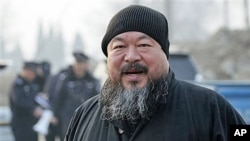The U.S. Department of State's annual report on human rights conditions around the world was recently released for the year 2010. The report stated that "a negative trend in key areas of [China's] human rights record continued."
The Report noted that "the [Chinese] government took additional steps to rein in civil society ... and increased attempts to limit freedom of speech and to control the press, the Internet, and Internet access. Efforts to silence political activists and public interest lawyers were stepped up, and increasingly the government resorted to extralegal measures including enforced disappearance, 'soft detention,' and strict house arrest, including house arrest of family members, to prevent the public voicing of independent opinions. ... Individuals and groups, especially those seen as politically sensitive by the government, continued to face tight restrictions on their freedom to assemble, practice religion, and travel."
The State Department said that China's human rights problems included extrajudicial killings, executions without due process, enforced disappearance, incommunicado and prolonged illegal detentions at unofficial holding facilities known as "black jails", torture and coerced confessions of prisoners, detention and harassment of journalists, writers, dissidents, and petitioners who sought to peacefully exercise their rights under the law.
The report noted other human rights problems including discrimination against women, minorities, and persons with disabilities; a coercive birth limitation policy, which in some cases resulted in forced abortion or forced sterilization; trafficking in persons; prohibitions on independent unions and a lack of protection for workers' right to strike; and the use of forced labor, including prison labor.
When introducing the Human Rights Report to the press, U.S. Secretary of State Hilary Rodham Clinton said that "we remain deeply concerned about reports that, since February, dozens of people, including public interest lawyers, writers, artists, intellectuals, and activists have been arbitrarily detained and arrested, among them most recently was the prominent artist, Ai Weiwei, who was taken into custody . . . [on] Sunday, [April 3rd]. Such detention is contrary to the rule of law, and we urge China to release all of those who have been detained for exercising their internationally recognized right to free expression and to respect the fundamental freedoms and human rights of all of the citizens of China."
Human Rights Report On China

"A negative trend in key areas of [China's] human rights record continued."



